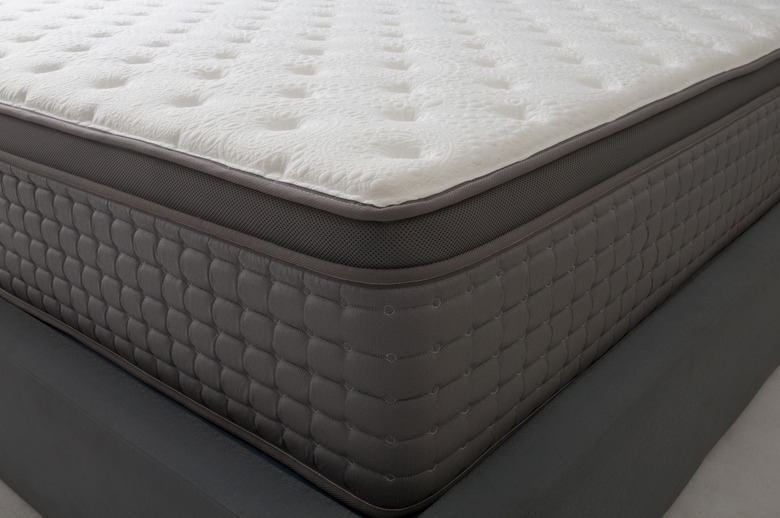How To Measure Foam Density
Buying a mattress can be difficult, and knowing what to look for in terms of density can help you get started asking the right questions. A common misunderstanding is that the density of foam – in a mattress or pillow for example – determines its firmness. This isn't the case. A low-density foam can still be firm or hard. Density tells you the weight of the foam more accurately than the firmness. Picture a styrofoam cup for example. It's extremely thin but very firm and stiff, and you definitely wouldn't want to sleep on a styrofoam bed.
How to Calculate Density
How to Calculate Density
To calculate the density of a piece of foam, you divide the weight of the foam by its width x height x length. If you measure in feet, density is expressed in weight per cubic foot.
Weight ÷ Width x Height x Length = Density
Say the density of a mattress is four pounds per cubic foot. This means that a cube of this mattress measuring a foot in each direction weighs four pounds. However, density isn't the only factor that will determine the comfort and firmness of a mattress.
Why Density Matters
Why Density Matters
Remember, density doesn't equal firmness, so keep this in mind when selecting a mattress. Density does reveal the quality and durability of the mattress. A denser mattress will be heavier, so it may be more difficult to move or flip around, but it should prove to be more durable because of the increased amount of compressed material.
Firmness, which is also important in a mattress, is measured by something called the indentation load deflection or ILD. This term refers to the force or load that your body exerts on the mattress. Basically, the higher the ILD, the firmer the mattress will feel.
How Dense Should a Good Mattress Be?
How Dense Should a Good Mattress Be?
That depends on several factors, including what type of mattress you prefer and how much you weigh. In general, a good-quality memory foam mattress should have a density of at least four pounds per cubic foot.
A standard mattress need not be as dense to be of good quality. Double-sided mattresses, which you don't find very often these days, should have a density of at least 1.5 pounds per cubic foot, and single sided mattresses should have densities of at least 1.8 pounds per cubic foot. If you're a heavy person, consider going with a mattress that is two pounds per cubic foot at the minimum, so that it lasts longer and is comfortable.
